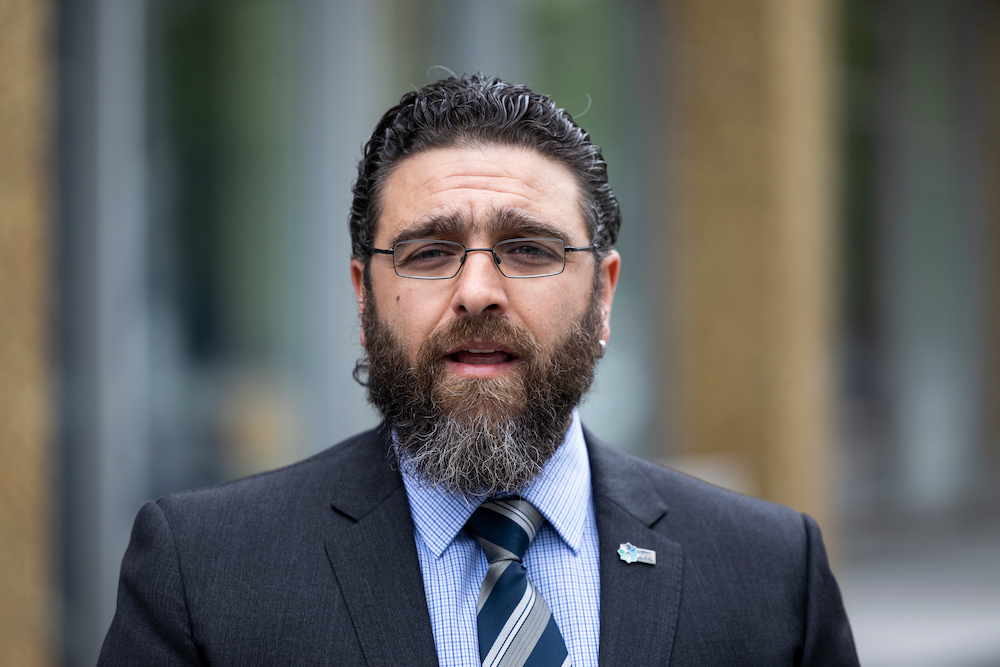Australian Federal Police officers, allegedly the lowest base-paid in the country, could take industrial action to secure better wages and conditions.
More than 3,200 members of the police union, the Australian Federal Police Association (AFPA), voted 96.7 per cent in favour of protected industrial action, in a ballot approved by the Fair Work Commission.
Alex Caruana, president of the AFPA, said the vote “sends an extremely strong message to the Federal Government and Australian Public Service Commission (APSC) that AFPA and AFP members are prepared to take action to get better workplace conditions and wages than those currently on offer”.
The industrial action could include restrictions on voluntary duties, on issuing traffic infringement notices, on attendance at courts, on transportation of witnesses, on collecting data, and on providing information to law enforcement.
However, police will continue to respond to incidents, Mr Caruana said.
“The AFPA wants to reassure the community that we have no intentions to compromise community safety,” the spokesman said. “Our members will continue to fulfil their duties with diligence and professionalism. If and when protected industrial actions occurs, the community may see police officers wearing wrist bands with messaging, or police cars with messaging on their windows. Many other protected actions are administrative in nature.”
The AFP said it had put in place contingency plans to ensure there were no disruptions to operational capability, and no impacts to community safety.
There is no confirmed date for when the industrial action will begin. Any protected industrial action requiring the AFP must be notified.
The AFP itself said that it had bargained in good faith with the AFPA, the Community and Public Sector Union (CPSU), and independent bargaining representatives since September, and remained intent on going to a vote for a new Enterprise Agreement before 25 May.
“The AFP intends to continue working constructively with all employee bargaining representatives to reach a final position on bargaining in the coming weeks,” a spokesperson said.
Mr Caruana said that the AFPA would continue to negotiate in good faith with the AFP, and that protected industrial action would remain “a viable and real option until negotiations for a new enterprise agreement with the AFP have ceased”.
The AFPA object to a proposed 11.2 per cent pay rise over three years, with no new allowances, under the Federal Government’s Public Sector Workplace Relations Policy 2023. This “blanket pay rise … doesn’t properly remunerate them as serving police officers”, Mr Caruana said.
Unlike other public servants, police “risk their physical and psychological health every day to protect the community, politicians, critical infrastructure, and Australia’s interests”, Mr Caruana said. They could be shot at, or assaulted, and no other public servants had “their decisions and integrity scrutinised as heavily”.
“The policies are rigid, and appropriate for traditional public service departments,” an AFPA spokesman said. “The AFP is a 24/7 law enforcement agency that is unique in the APS. While AFP employees are employed by the Commonwealth, they are not traditional public servants.”
Moreover, although the AFP was the Federal Government’s law enforcement and policing agency, its officers tasked with protecting both the Prime Minister and politicians, even at the cost of “taking a bullet”, and AUKUS assets and infrastructure, it was also “the lowest-paid sworn officer cohort in the country”, Mr Caruana said.
An AFP recruit earns $37,000 for six months of training, the AFPA said. Conversely, NSW has the highest paid police recruits in Australia and the highest paid police officers with less than five years’ experience; after a recent pay increase, they earn nearly $31,000 for a four-month training course.
Queensland has increased the wage of new recruits to $52,000, among the highest in the country. Lateral recruits from other jurisdictions are offered $20,000, and often given their ‘station of choice’. Some ACT Policing members transferred to Queensland Police under the lateral program as the AFP could not offer them positions or transfers in Queensland.
“For the AFP to recruit the best and brightest, it needs to be competitive in the market,” Mr Caruana said. “Today, every other police service can say it pays a better base wage to members starting their careers than the AFP does.”
“There is also more than just money,” the AFPA spokesman said. “The opportunity to remain and train in your home state is a big incentive for recruits to join their home jurisdiction. The financial benefits just make their decision easier.”
The AFPA plans to meet Senator Katy Gallagher, Minister for the Public Service, to discuss their concerns about the bargaining of the new enterprise agreement. Neither Senator Gallagher nor Attorney-General Mark Dreyfus had any comment.


